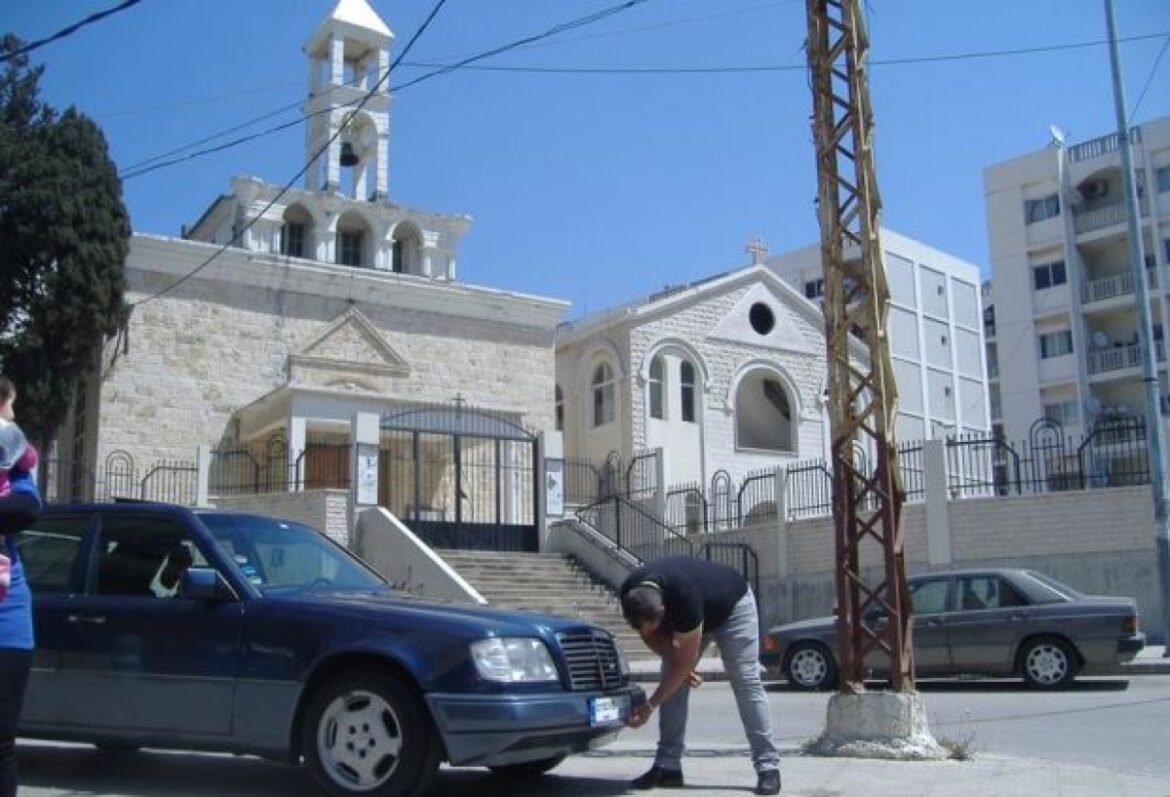TRIPOLI, Lebanon- Father Arabius knows his city well. He serves St. Michael’s Orthodox Church in Ebbe, a district of Lebanon’s second city, Tripoli. Ebbe is bordered by two rival neighborhoods where a recurring conflict has violently erupted once again. Since the start of the uprising in Syria, Tripoli has seen frequent episodes of fighting between supporters of Syrian President Bashar Al-Assad in the predominantly Alawite neighborhood of Jabal Mohsen and their opponents in the largely Sunni district of Bab Al-Tabbaneh. Christians have been caught in the crossfire.
St. Michael’s has recently seen a low turnout for services. The near-daily clashes have driven out many of the city’s Christian inhabitants. Father Arabius says Tripoli’s population has significantly dropped; Christians, as well as many Muslims, have left out of fear for their safety and financial necessity as the city’s economy tumbles. Only seventy-five Christian families have stuck it out in Ebbe.
According to Father Nicolas Daoud, a member of the Greek Orthodox Metropolis of Tripoli–Koura, the Christian population of Tripoli has shrunk to no more than 7 percent today. He estimates there are around 10,000 Christians currently living in the port city, including Orthodox, Catholic and Evangelical denominations. “Christians are afraid to be caught in the crossfire, to see their houses set ablaze, shops hit by bullets or to lose their jobs,” Father Daoud says.
In January, a stun grenade was fired at St. George’s Church, on the popularly named “Churches Street” in Zahiriyyeh, leaving two youths injured. “St George’s is sometimes kept closed due to its sensitive location,” Father Daoud explains. “Christians are not always able to attend mass services or prayers there.” Earlier the same month, a library belonging to a Christian Orthodox priest was set on fire, reportedly by extremists, destroying two-thirds of some 80,000 books and manuscripts.
Christians were once an essential part of Tripoli’s diverse community. The old headquarters of the Greek Orthodox Archdiocese of Tripoli–Koura were based in Zahiriyyeh, but were destroyed during the Lebanese civil war and later rebuilt in a safer location. The majority of Christian residents were pushed out of the city. Then numbering 90 percent of Zahiriyyeh’s population, today Christians make up only 10 percent.
Nevertheless, Father Daoud keeps the faith. The Greek Orthodox Metropolis is trying hard to persuade Christians to stay, by talking to local politicians and parliamentarians to prompt dialogue, liaising with companies and creating jobs for local Christian youth, building homes—on Archdiocese-owned land—and allocating cheap housing to Christians away from unsafe locations in Tripoli.
Monthly meetings gather together Tripoli’s top religious figures, including the Bishop of the Orthodox Church, the head of the Maronite Church, the Bishop of the Catholic Church and the Sunni Mufti Malek Al-Shaar, a prominent moderate sheikh.
“We’re regularly meeting with Malek Al-Shaar; he’s a very sensible person,” Father Daoud adds. “Unfortunately, a lot of Sunni Muslims listen to politicians but not to him.”
Father Arabius doesn’t think the clashes between the Sunnis and Alawites are about religion. He believes the local rivalries are based on political affiliation, not creed. “What’s been happening is not because we’re not able to live together, we have coexisted peacefully for so many years,’’ he says, firmly rejecting the sectarian argument: “The clashes have been directed by political motives.” He also notes that Christians themselves are divided in their allegiances.
In his view, the media has played a negative role, either in depicting the recent violence in Tripoli as sectarian strife or by placing an emphasis on its interreligious tensions, thereby portraying Tripoli as a city full of extremists.
For the time being the Lebanese army’s security plan, launched on April 1, maintains a fragile peace. Although welcomed by Tripolitans, it is largely seen as a temporary ceasefire agreement that could be broken at any time.
Father Daoud believes most people have confidence in the Lebanese army, but little faith in the authorities. He thinks Tripoli’s politicians are leading the strife by supplying weaponry to sympathizers and recruiting gunmen.
Father Arabius has similar ideas. He’s convinced there’s a bigger plan to disrupt the peaceful coexistence of communities in Lebanon and make the Middle East a region without Christians. He believes outside interference is disturbing the peace, arguing that the average poor resident of Tripoli cannot afford the heavy weaponry that has been flooding into the area: “What’s going on in Tripoli and Lebanon, in general, is part of decisions made outside the region. It’s much bigger than we think.”
Originally published in The Majalla

